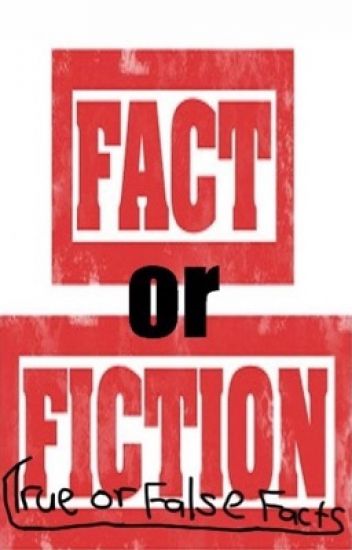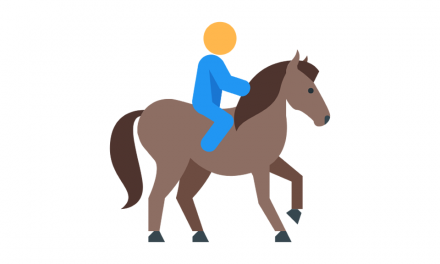A lot of what we “know” to be true can sometimes turn out to be no more than an ‘urban legend’. The internet has been especially good at propagating certain things which aren’t true as “facts”. But can you tell whether they’re fact or fiction ?
Take the quiz below to see if you know the “truth” … then again maybe this article is propagating more ‘urban legends’ … you decide.
Fanta was invented in Nazi GermanyFanta, a brand owned by The Coca-Cola Company, is available in a bewildering number of flavours: something like 70 worldwide, including such delicacies as corn, vanilla cream, cinnamon rum, tamarind, bubble gum and bitter water. |
Answer...TRUE : If it hadn’t been for Adolf Hitler, you wouldn’t be able to enjoy the drink that evokes “happiness and special times with friends and family”, according to its makers. To be clear about this, though, Fanta was not invented ‘by a Nazi’; it was not invented ‘by the Third Reich’; and it was not invented ‘for the Nazis’. It happened to be invented in Nazi Germany during the Second World War, by Coca-Cola GmbH, the German branch of the Coke empire. In contrast to the post-war image of Coca-Cola as a brand representing the American way of life everywhere in the world, during the 1930s Coca-Cola was carefully marketed in Germany so as not to emphasise its American heritage. Coke’s sales grew from strength to strength in the lead-up to war with their target market being industrial workers, who were having to put in more hours and therefore needed more refreshment. By 1939, 10 years after its launch in that country, over 4 million cases of Coke were sold annually in Germany. When war was declared ‘The Office of Enemy Property’, took control of Coca-Cola plants in the countries that came to be occupied by Hitler. Early on in the war, it became clear that American supplies of the various ingredients for Coca-Cola would soon be cut off, as would any contact with the US bosses. Attempts were therefore started to come up with a new fruit-flavoured soft drink. The one that they came up with counted caffeine, cheese whey and cider residue among its ingredients. A contest to name the new drink was initiated inviting his employees to use their imagination – Phantasie in German. Someone, however, just suggested the abbreviated word “Fanta” as the name. Once the war had ended, American representatives of The Coca-Cola Company were delighted to find out about the new “Fanta” brand, which had proved to be highly popular from the outset. The Coca-Cola Company introduced Fanta to the US in 1960. |
Flies can take off backwardsFlies can be pretty haphazard in their flight and in common with many insects they are able to very swiftly change direction – forwards, backwards or sideways – as they see fit. But can they really take off backwards ? |
Answer...TRUE : Flies can take off backwards. When it comes to taking off from a stationary position on a table, kitchen surface or ‘various other unmentionables’, you’d think it might be helpful to be able to see where you’re going. But not if you’re a house fly – (Musca domestica). They frequently (but not consistently) take off backwards. Disappointingly, scientists don’t really seem to know how flies take off backwards. Insect flight has been studied extensively, but a full understanding of their ingenious means of locomotion remains elusive. Many flying insects have two pairs of wings, but in the case of the Diptera order, which includes house flies, fruit flies and mosquitoes, the rear pair have evolved to become halteres – tiny drumstick-shaped filaments that function as a kind of gyroscopic guidance system, and without which the fly cannot fly- This guidance system helps them undertake the sudden mid-flight switches of direction that are known as ‘saccades’, and is clearly involved in the take-off, but no one is quite sure what’s actually going on. |
Colgate means ‘go hang yourself’ in SpanishBusinesses who market their products internationally often have to change brand names for different countries. Indeed its standard practice to carry out market research on proposed brand names before launching them, to ensure that the name is deemed to be catchy and inoffensive in a particular language or region, and also to ensure that it won’t be the same as, or confused with, an existing product. In the case of Colgate … something seems to have gone wrong! |
Answer...TRUE : ‘Colgate’ does mean “go hang yourself” in Spanish In Spanish, the verb colgar means ‘to hang’ and the use of a -te suffix on a verb whose infinitive ends in -ar creates the second person singular imperative form of the verb, meaning that it becomes a command to do something directed at the person the speaker is talking to. In European Spanish, however, the ‘o’ of the verbe colgar modifies to become a ‘u’ and an ‘é’ gets added to the mix too. So to say ‘hang yourself’ or ‘go hang yourself’ in European Spanish you might say cuélgate. For Spanish spoken in Argentina, however, it’s a differnt matter. No ‘é’ is added which means that the corresponding verb form for ‘go hang yourself’ really is colgate as in the toothpaste. The meaning of the word colgate hasn’t, however, resulted in Colgate-Palmolive changing their name in Argentina. Another interesting factoid : In Spansish speaking countries the Mitsubishi Pajero is called the Mitsubishi Montero because in Spanish pajero means ‘wanker’. |
Legally, Jaffa Cakes are biscuitsIf you live in the UK, you’ll be very familiar with the ever-popular Jaffa Cakes: chocolate-covered biscuits with the ‘smashing orangey bit’ in the middle. Well, you’d probably assume they’re biscuits, despite their name, since you’ll find boxes of McVities Jaffa Cakes in the biscuits aisle, alongside Rich Tea, Garibaldi, Digestives and the like. But as to whether they are legally’ biscuits, who cares? It’s not as if you’d ever find lawyers arguing in a courtroom about something so petty. Or would you? In 1991 the UK tax authorities, told McVities that Jaffa Cakes were biscuits. Somewhat randomly, it might seem, both biscuits and cakes are ‘zero-rated’ products under the Value Added Tax Act 1983, which means they are not taxable – but biscuits are subject to value-added tax at 17.5 per cent IF they are covered in chocolate or chocolate substitute. McVitie’s were firmly of the opinion that, as the product’s name suggested, a Jaffa Cake … is a cake, and that they should not be stumping up any cash, so they appealed. The London VAT Tribunal hearing quickly descended into deep philosophical debate surrounding the nature of cakes and biscuits. The tribunal found that it was not a question of whether a Jaffa Cake was a cake or a biscuit, but more generally whether it was ‘cake or non-cake’. Mr D.C. Potter QC (who described Jaffa Cakes’ packaging as ‘uncakelike’) proceeded to the mind-blowing assertion that ‘a product which is a biscuit (whether or not covered in chocolate) is capable of being also a cake’. At which point, we might all stop to consider whether a biscuit can be capable of ‘being capable’. |
Answer...FALSE : A Jaffa Cake is a cake not a biscuit. Eventually Mr Potter ruled, once and for all, that Jaffa Cakes are ‘cakes’ – and furthermore, to avoid any future confusion, that Jaffa Cakes are also ‘not biscuits’. During the hearing, reference was made to a similar appeal in 1989 by Marks and Spencer, concerning their Caramel Shortcake Slices. On that occasion, Marks and Spencer submitted various food products to help their case, including exhibit A2: a box of six Harvest Currant Slices, exhibit A4: a box of Jaffa Cakes and exhibit A7: a box of six Mr Kipling Caramel Shortcakes. Customs & Excise upped the ante, by unveiling a rival selection of snacks, including their own box of Jaffa Cakes, a box of eight chocolate and black cherry biscuits, and in a dazzling legal manoeuvre – a box of chocolate and orange thins.
There followed a protracted discussion involving the similarities of shortcake and shortbread, although no one properly addressed the issue of whether shortbread is bread, or questioned how something could be a thin’. Eventually Marks and Spencer won their appeal, but not as a result of the tribunal panel bothering to define the technical characteristics, composition or preparation of a cake. No, the decisive factor of the panel was that ‘in the unanimous view of the tribunal it tasted like a cake’. |
A bloke had hiccups for 68 yearsMost of us suffer the occasional bout of hiccups – or hiccoughs, if you prefer the olde-worlde spelling – for a few minutes, during which time we find ourselves besieged with advice from friends about drinking out of the wrong side of the glass or breathing into a paper bag. Eventually you notice that they’ve simply gone away. For some people, however, it can take weeks, and in extreme cases years, for hiccups to subside. In these situations, quite aside from the annoyance factor, persistent hiccupping can cause medical problems such as pulling stomach muscles and tearing the oesophagal lining. The medical term for hiccupping is singultus and to this day no one really understands why it happens. The involuntary spasms of the diaphragm and the subsequent closures of the glottis seem to be caused by irritation to the phrenic and vagus nerves, and where medical intervention is really felt to be necessary, this tends to involve sedation, effectively switching the relevant bits of your brain off for a while, or if absolutely necessary, surgery to the phrenic or vagus nerves. |
Answer...TRUE : A man did hiccup for 68 years Cases measured in years are rare but not unheard of. In December 2000 a man called Bill Holloway from Covington, Virginia, finished a bowl of soup, Campbell’s Chunky Soup, apparently, and was still hiccupping over six years later at the age of 84. John Francis Crosland, of Laurinburg, North Carolina, started hiccupping in 1961 and hadn’t stopped in 2004, by which time he had bought a customised registration plate for his car, reading “HICUPMAN”. The longest case of hiccupping, however, was that of Charles Osborne of Iowa, who hiccupped continually for 68 years, starting in 1922 while he was slaughtering a pig. Osborne was in the process of hanging the pig from a tree branch when he shouted for his wife to help him – and at that moment the hiccups struck. (To set this story in context, it should be noted that Charles Osborne was a farmer, so it’s not as if stringing pigs up on trees was some kind of weird pastime.) In 1988 he rather perceptively told a newspaper: “Someday its gonna kill me, I s’pose. Or else I’ll just die”. In 1990 his hiccups finally stopped, spontaneously, and the following year he died of unrelated causes. |





